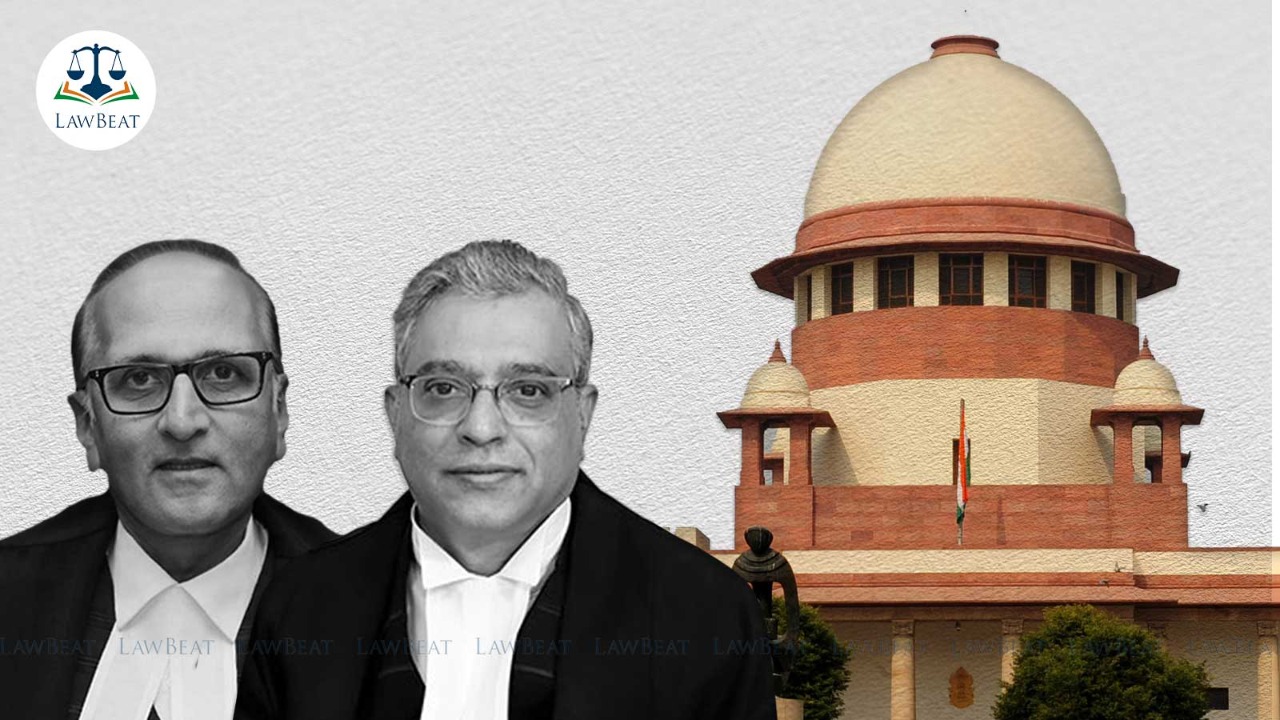State cannot evade its legal responsibility from whom private property has been expropriated on mere grounds of delay: Supreme Court

The Supreme Court recently held that while acquiring land, the State, merely on the ground of delay and laches, cannot evade its legal responsibility towards those from whom private property has been expropriated.
"It is the cardinal principle of the rule of law, that nobody can be deprived of liberty or property without due process, or authorization of law", the bench of Justices S Ravindra Bhat and PS Narsimha observed.
The division bench also held that State has a higher responsibility in demonstrating that it has acted within the confines of legality, and therefore, not tarnished the basic principle of the rule of law.
These observations were made by the apex court while allowing an appeal filed by Sukh Dutt Ratra and Bhagat Ram, two landowners, whose lands were acquired by the State of Himachal Pradesh along with adjoining lands for the construction of the ‘Narag Fagla Road’ in 1972-73.
Allegedly, no land acquisition proceedings were initiated, nor compensation was given to the appellants or owners of the adjoining land.
The owners of the adjoining land approached the reference court after the High Court had directed the State to initiate land acquisition proceedings and an award was passed in 2001 fixing compensation at ₹30,000 per bigha.
Reference court had held that the neighboring landowners were entitled to enhanced compensation of ₹39,000 per bigha; solatium of 30% per annum on the market value of the land; additional compensation at the rate of 12% per annum under Section 23(1-A) of the Land Acquisition Act w.e.f. 16th October 2001 (date of issuance of notification under Section 4) till the date of making of the award by the Collector, i.e. 20th December, 2001; and under Section 28, interest of 9% per annum from 16th October, 2001 for a period of one year, and thereafter 15% per annum, till the date of payment.
When the instant appellants had approached the High Court in 2011, seeking compensation for the subject land, while relying on a full bench decision of the High Court in Shankar Dass v. State of Himachal Pradesh, it was held that the matter involved disputed questions of law and fact for determination on the starting point of limitation, which could not be adjudicated in writ proceedings.
The top court noted that while the right to property was no longer a fundamental right, at the time of dispossession of the subject land of the appellants, this right was still included in Part III of the Constitution.
"The right against deprivation of property unless in accordance with procedure established by law, continues to be a constitutional right under Article 300-A....", said the bench.
When it comes to the subject of private property, Court opined that it has upheld the high threshold of legality that must be met, to dispossess an individual of their property, and even more so when done by the State.
A holistic view made it apparent that the State’s actions, or lack thereof, compounded the injustice meted out to the appellants and compelled them to approach the supreme court, albeit belatedly.
"The initiation of acquisition proceedings initially in the 1990s occurred only at the behest of the High Court. Even after such judicial intervention, the State continued to only extend the benefit of the court’s directions to those who specifically approached the courts. The State’s lackadaisical conduct is discernible from this action of initiating acquisition proceedings selectively, only in respect to the lands of those writ petitioners who had approached the court in earlier proceedings, and not other land owners...in this manner, at every stage, the State sought to shirk its responsibility of acquiring land required for public use in the manner prescribed by law", remarked the bench.
Opining that there cannot be a ‘limitation’ to doing justice, the bench referred to the facts of the present case which revealed that the State had, in a clandestine and arbitrary manner, actively tried to limit disbursal of compensation as required by law, only to those for which it was specifically prodded by the courts, rather than to all those who are entitled.
Thus, in view of Court’s extraordinary jurisdiction under Articles136 and 142 of the Constitution, the State has been directed to treat the subject lands as a deemed acquisition and appropriately disburse compensation to the appellants in the same terms as the order of the reference court.
"The Respondent-State is directed, consequently to ensure that the appropriate Land Acquisition Collector computes the compensation, and disburses it to the appellants, within four months from today. The appellants would also be entitled to consequential benefits of solatium, and interest on all sums payable under law w.e.f 16.10.2001 (i.e. date of issuance of notification under Section 4 of the Act), till the date of the impugned judgment, i.e. 12.09.2013...", ordered the Court.
The State government of Himachal Pradesh has also been directed to pay legal costs and expenses of ₹ 50,000 to the appellants.
Case Title: SUKH DUTT RATRA & ANR. vs STATE OF HIMACHAL PRADESH & ORS.
